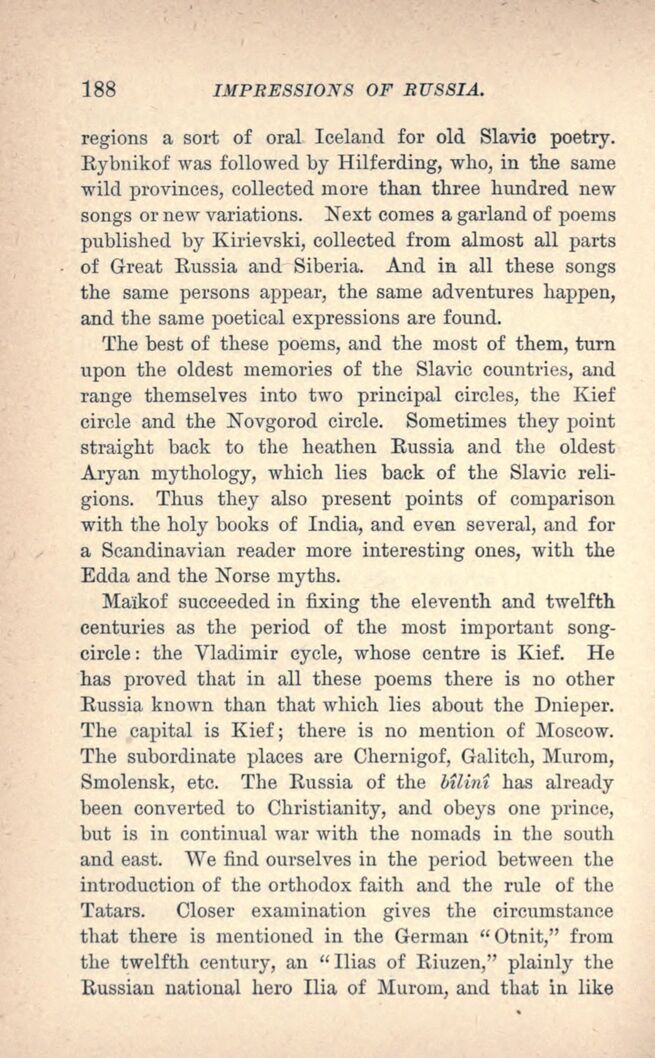
Full resolution (JPEG) - On this page / på denna sida - Impressions of Russian Literature - I

<< prev. page << föreg. sida << >> nästa sida >> next page >>
Below is the raw OCR text
from the above scanned image.
Do you see an error? Proofread the page now!
Här nedan syns maskintolkade texten från faksimilbilden ovan.
Ser du något fel? Korrekturläs sidan nu!
This page has been proofread at least once.
(diff)
(history)
Denna sida har korrekturlästs minst en gång.
(skillnad)
(historik)
regions a sort of oral Iceland for old Slavic poetry.
Rybnikof was followed by Hilferding, who, in the same
wrild provinces, collected more than three hundred new
songs or new variations. Next comes a garland of poems
published by Kirievski, collected from almost all parts
of Great Russia and Siberia. And in all these songs
the same persons appear, the same adventures happen,
and the same poetical expressions are found.
The best of these poems, and the most of them, turn
upon the oldest memories of the Slavic countries, and
range themselves into two principal circles, the Kief
circle and the Novgorod circle. Sometimes they point
straight back to the heathen Russia and the oldest
Aryan mythology, which lies back of the Slavic
religions. Thus they also present points of comparison
with the holy books of India, and even several, and for
a Scandinavian reader more interesting ones, with the
Edda and the Norse myths.
Maikof succeeded in fixing the eleventh and twelfth
centuries as the period of the most important
song-circle: the Vladimir cycle, whose centre is Kief. He
has proved that in all these poems there is no other
Russia known than that which lies about the Dnieper.
The capital is Kief; there is no mention of Moscow.
The subordinate places are Chernigof, Galitch, Murom,
Smolensk, etc. The Russia of the bîlinî has already
been converted to Christianity, and obeys one prince,
but is in continual war with the nomads in the south
and east. We find ourselves in the period between the
introduction of the orthodox faith and the rule of the
Tatars. Closer examination gives the circumstance
that there is mentioned in the German “Otnit,” from
the twelfth century, an “Ilias of Riuzen,” plainly the
Russian national hero Ilia of Murom, and that in like
<< prev. page << föreg. sida << >> nästa sida >> next page >>